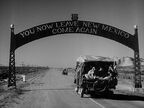In Amartya Sen's discussion, famines are attributed to man-made rather than natural disasters. In a democratic country, there will be no famine, because it is not difficult for a country to maintain the most basic life and save lives. Unless under a centralized system, information is withheld, and the government can act without scruples. He cites a passage from Mao Zedong after the Great Famine in China in 1959-1961, in which Mao rarely admitted that a lack of democracy resulted in a lack of information flow, which in turn led directly to the inability to "centralize" correctly. Officials were desperately trying to increase reported food production when the famine had already occurred.
It is not uncommon for there to be hunger on one side, food exports or aid on the one hand, and food that cannot be bought on the other, and food that cannot be eaten on the other. The economic downturn makes those who are left behind lose their ability to survive. Whether it's a reduction in food production or damage to an industry, a group may face the threat of starvation.
At this time, if the government can neither reasonably distribute the limited food nor create new jobs through active fiscal policies, and there is no social relief and protection net, tragedy will inevitably come. American-style liberals tend to go the second way, while China once had a rationing system and Europe built a strong welfare network.
The Grapes of Wrath is about 1930's America. Now, there are 50 million landless peasants in China, with meager landless subsidies, struggling to survive. Every day, people shout in different ways: "On our own land, we all need to hide!"
View more about The Grapes of Wrath reviews











